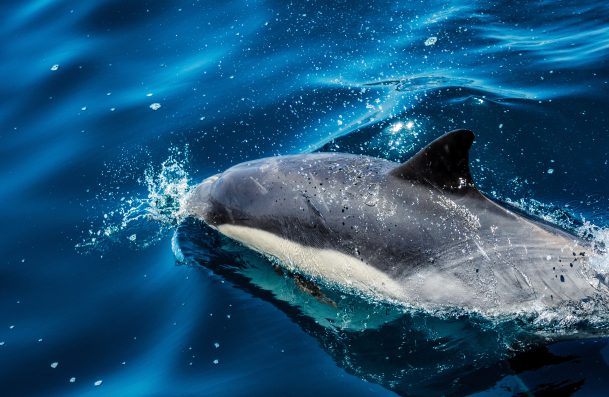Vaquitas, Shy Members Of The Porpoise Family, Are Currently The Most Endangered Marine Mammal In The World, With This Species’ Population Decreasing From 570 To Just 10 In A Decade

The most significant threats to marine mammals are caused by humans, both directly and indirectly. From habitat loss and illegal hunting to climate change, several species that make their homes in the ocean are at risk of disappearing from the waters forever.
One of those species is the vaquita. The total number of these creatures has decreased from 570 to 10 in a decade, making the vaquita the most endangered marine mammal in the world. They are dangerously close to extinction, but not all hope for their survival is lost yet.
It wouldn’t be a surprise if you’ve never heard of the vaquita. The porpoise was not studied until the mid-20th century and is known for being shy.
Vaquitas are the world’s smallest cetaceans, which are aquatic mammals that include whales, dolphins, and porpoises. On average, they grow up to five feet long and weigh no more than 120 pounds.
They have round heads, no beaks, and mouths that are shaped in what appears to be a permanent smile. Despite their small size, their dorsal fins are the largest out of the other species of porpoises.
Vaquitas inhabit the shallow waters of the Gulf of California in Mexico. This area is frequented by local fishermen who rely on catching shrimp and fish for a living. They also may set out to illegally catch a giant fish called the totoaba.
The totoaba’s bladder is consumed in China for its medicinal properties and can bring in thousands of dollars when sold in the black market.
In order to haul in these creatures, fishermen typically use what’s called a gillnet, which is the main reason for the vaquita’s decline. Vaquitas will often become entangled in the deadly nets. In the last thirty years, their population has dwindled by more than 95 percent.
The Mexican government has established a number of laws to protect the species. For one, they banned the use of gillnets for fishing in the vaquita’s habitat. However, the vaquita population still has not been showing any signs of recovery. This is because the Mexican government is not enforcing its own law and failing to deliver punishment to those caught fishing illegally.

Don – stock.adobe.com – illustrative purposes only, not the actual animal
The vaquita’s survival is heavily dependent on the enforcement of the law. Breeding captive vaquita has proven to be unsuccessful. Vaquitas die from the stress of being held captive in a new environment.
With so few vaquitas remaining, researchers feel that they are unable to work with them to figure out how to ease their stress. So, the only option left is to focus on getting rid of gillnets.
If immediate action is taken, the vaquita will be given the chance to swim the seas for years to come.
If true crime defines your free time, this is for you: join Chip Chick’s True Crime Tribe
In 1978, This Mom Of Three From Nebraska Mysteriously Vanished After Visiting A Local Bar
This Towel Rolling Technique That Will Make Your Bathroom Feel Like A Beautiful Five-Star Hotel
Sign up for Chip Chick’s newsletter and get stories like this delivered to your inbox.
More About:Animals





